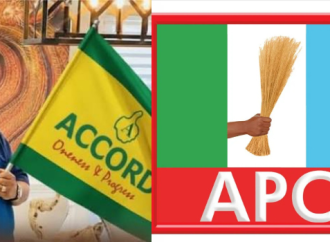Nigerian Tribunal Upholds $220M Fine Against Meta for Data Privacy Violations In a landmark ruling, Nigeria’s Competition and Consumer Protection Tribunal has upheld a $220 million fine against Meta Platforms Inc. and its subsidiary, WhatsApp, over data privacy breaches that authorities say discriminated against Nigerian users. The decision, delivered by a three-member panel led by
Nigerian Tribunal Upholds $220M Fine Against Meta for Data Privacy Violations

In a landmark ruling, Nigeria’s Competition and Consumer Protection Tribunal has upheld a $220 million fine against Meta Platforms Inc. and its subsidiary, WhatsApp, over data privacy breaches that authorities say discriminated against Nigerian users. The decision, delivered by a three-member panel led by Chairman Thomas Okosun, marks a significant moment in the country’s efforts to assert sovereignty over digital data governance.
In addition to affirming the substantial monetary penalty, the tribunal directed Meta to pay an extra $35,000 to cover investigative costs incurred by the Federal Competition and Consumer Protection Commission (FCCPC). The fine, originally imposed in July 2024, follows a comprehensive investigation into the company’s handling of user data in Nigeria.
Felix Morka Blames Atiku for PDP Crisis, Defends Party Over Defections
Meta Penalized for Discriminatory Data Practices
The FCCPC’s investigation concluded that Meta committed several violations, including the unauthorized transfer and sharing of personal data, cross-border data storage, abuse of market dominance, and tying and bundling of services. These actions, the Commission argued, not only breached Nigeria’s data protection laws but also infringed on citizens’ constitutional rights to privacy and self-determination.
According to the FCCPC, Meta’s practices entrenched structural inequalities by failing to offer Nigerian users the same data protections enjoyed by users in other jurisdictions. The Commission also emphasized that the company’s actions undermined consumer autonomy and violated fair competition norms.
In defense, Meta launched a robust legal challenge with 22 grounds of appeal. The tech giant claimed the Commission’s directives were vague, impractical, and unsupported by Nigerian law. Its legal team, led by Professor Gbolahan Elias (SAN), argued that there was no abuse of dominance since alternative services like TikTok and Google Meet are available to users.
However, the tribunal rejected Meta’s arguments, maintaining that the company had ample opportunity to present its case and failed to counter the FCCPC’s findings. “The appellants were given ample opportunity to be heard,” Chairman Okosun declared. He dismissed claims of procedural unfairness, asserting that the Commission operated within the bounds of due process.
Professor Elias also challenged the relevance of foreign legal precedents cited by the FCCPC. But this position was rebutted by Babatunde Irukera (SAN), former FCCPC executive vice chairman, who explained that while foreign rulings are not legally binding, they provide valuable guidance in comparable contexts. He insisted the sanctions were not punitive but corrective, aiming to enforce responsible data handling and protect Nigerians’ rights.
Strict Compliance Orders Issued
Beyond the financial penalties, the tribunal issued a series of stringent compliance directives to Meta. The company must reinstate Nigerian users’ rights to control how their data is collected, stored, and shared. It must also revert to its 2016 data-sharing policy, a move designed to restore more user-friendly privacy protections.
Meta is required to submit a revised data usage policy to both the FCCPC and the Nigeria Data Protection Commission (NDPC) within 10 days and make the updated policy publicly available. Furthermore, the company is barred from linking WhatsApp user data with Facebook or any third party without obtaining users’ informed and explicit consent.
A formal compliance report is due by July 1, 2025, signaling a tight deadline for Meta to overhaul its practices in one of Africa’s largest digital markets.
The tribunal’s ruling signals a significant shift in the global regulatory landscape, as Nigeria asserts its commitment to protecting digital rights and consumer sovereignty. It also sends a strong message to international tech firms operating within the country’s jurisdiction — compliance with local laws is not optional.





















Leave a Comment
Your email address will not be published. Required fields are marked with *